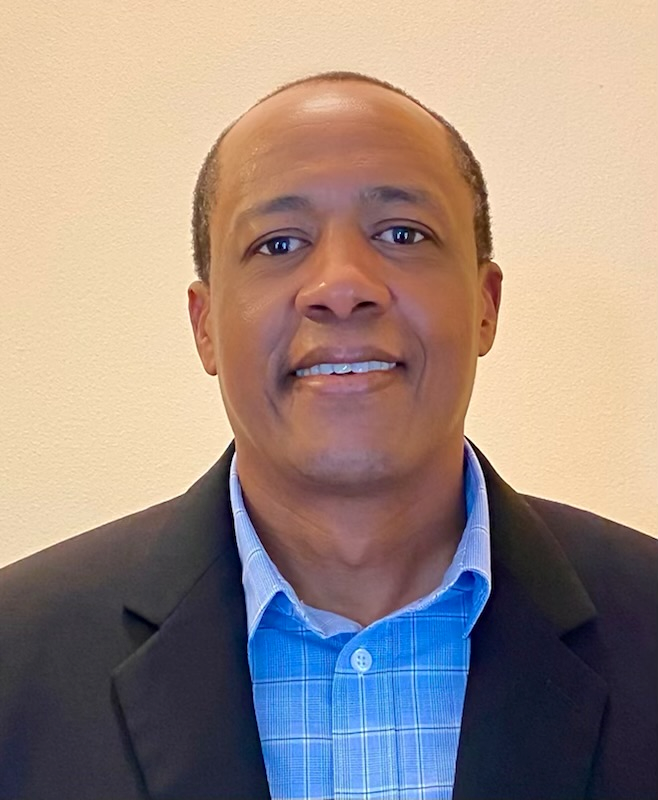Walter Suza guest column: A reflection on Pledge of Allegiance
“Out of the darkness light shall shine.”
Some of my childhood memories are of walking past the American Embassy in Tanzania. The tall walls capped with barbed wire and the armed guards behind the steel gate prevented me from seeing the inside of the chancery. But the obstacles failed to prevent my eyes from scaling the walls to the rooftop to gaze at the American flag above the surrounding green vegetation.
The American flag created in me a desire to become an American. In adulthood and seeking to become an American, I was asked to take the Oath of Allegiance, promise my loyalty to the United States and even to “bear arms on behalf of the United States when required by the law.”
To be an American also meant learning about the Pledge of Allegiance, which came to life in 1892 after Francis Bellamy wrote: “I pledge allegiance to my flag and the Republic for which it stands — one Nation indivisible — with liberty and justice for all.” The words “the flag of the United States of America” were added in 1932, and “under God” in 1954.
Today the Pledge of Allegiance reads: "I pledge allegiance to the flag of the United States of America, and to the republic for which it stands, one nation under God, indivisible, with liberty and justice for all."
Even though Americans born in the United States are not required to take the Oath of Allegiance, they might be required to recite the pledge. In Iowa and 46 other states, K-12 students are required to recite the pledge in schools. The legality of mandating the Pledge of Allegiance is a contentious issue, which has been debated even in the Supreme Court.
But do all Americans appreciate the gravity of the words “one nation under God indivisible with liberty and justice for all?”
What does “one nation” mean? Unity in the United States? But can we be “one nation” under such deep cultural, sociopolitical and economic divides? Can we be “one nation” as red and blue states? Can we be “one nation” as Republicans and Democrats, liberals and conservatives, White, Brown and Black?
What does “under God” mean? That our dollar bills contain the word God? That we proudly sing "God Bless America"? That we embrace the word “God” in the Constitution?
If to be an American is to be under God, what would God be like? One who is angry and punishes when we mess up? One who is on our side when at war with other nations? One who saves us but lets others perish?
When we say “God,” are we talking about the God in Christianity? Judaism? Islam? How about those who are atheist or agnostic? Do they have a place in the America of our God?
For those wanting America to be a Christian nation, would God be love? Love that is patient, kind, does not envy, does not boast, is not proud, does not dishonor others, is not self-seeking, is not easily angered, keeps no record of wrongs, rejoices with the truth, always protects, always trusts, always hopes, always perseveres, never fails?
If America is a Christian nation, are non-Christians free? Would the Christian God be the one who was once a migrant? Would he care about migrants at the Southern border?
What does “indivisible” mean for a nation that is still racially segregated? When American cities are still redlined and gentrified, leaving the vulnerable more impoverished? When our passion for our rights leads us to resort to violence?
If we are one nation, under one God, and indivisible, does that mean we will have liberty? Can those who do not believe in our God have the liberty to not be religious? Would we take away others’ civil liberties because they contradict our God’s laws? Do we have the right to impose our God on others?
If we are one nation, under one God, indivisible, with liberty, does it mean we will have justice? What do we do with elected officials who act as if they are above the law? What do we do with those who encourage violence? What do we do with police officers who shoot and kill unarmed persons? What do we do for cities like Jackson, Mississippi, and Flint, Michigan, where kids are poisoned by lead because of systemic racism? What do we do to reduce Black and Brown death rates because of lack of access to health care?
Let’s imagine the American flag being more than just a symbol of freedom and justice. The 50 stars were formed by “We the People.” The 13 stripes by wounds from injustice. The wounds are yet to fully heal. To heal the wounds, the stars must shine to illuminate injustice. For the stars to shine, “We the People” must provide the light.
Not just blue light or red light. We need white light.

Walter Suza of Ames, Iowa, writes frequently on the intersections of spirituality, anti-racism and social justice. He can be contacted at wsuza2020@gmail.com.
This article originally appeared on Des Moines Register: Opinion: A reflection on Pledge of Allegiance and its meaning

